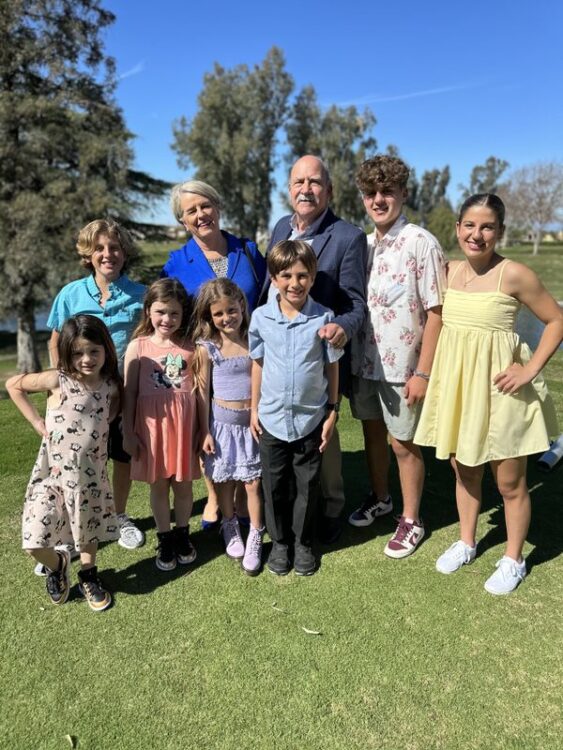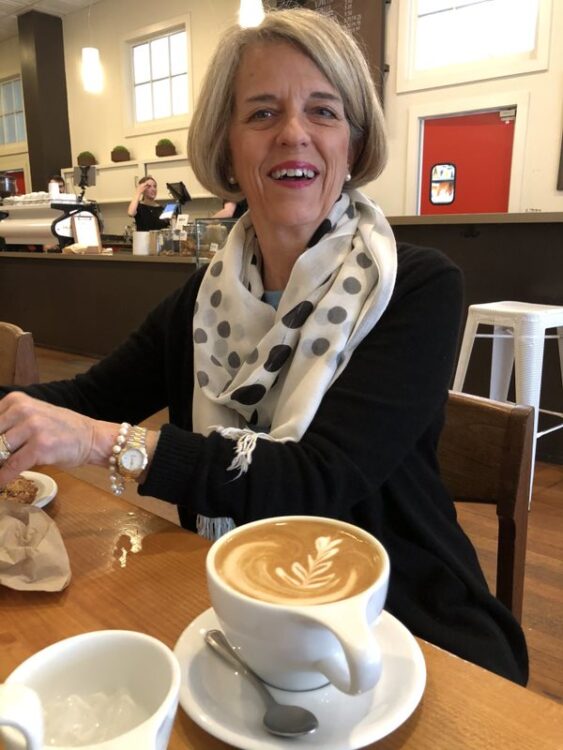Karen W. didn’t feel well when she returned from a trip to Europe in late 2007. She thought she had gallbladder issues, so her doctor sent her for a scan. It was a “fluke” that the tech spotted a tumor on her lung. The next day, she received a call from her primary care provider, who referred her to a pulmonologist. 
This all came as a surprise to Karen. She was not considered “high risk” for lung cancer and, luckily, was diagnosed early at stage 1B (IB). Her doctor told her that she would not have had symptoms that would have flagged it as possible lung cancer until a year later, at which time the outcome could have been much worse.
“I know so many people who were caught at stage 4 (IV) who didn’t have the options I had,” she said.
Karen’s treatment path
Karen had a lobectomy (surgery to remove a lobe of the lung) and was told she needed to go back to her pulmonologist to see if she needed further treatment.  She determined, with her care team, that she would continue treatment to extend her survival. This included 4 cycles of chemotherapy, each cycle given every 3 weeks.
She determined, with her care team, that she would continue treatment to extend her survival. This included 4 cycles of chemotherapy, each cycle given every 3 weeks.
“I am here, almost 17 years later, and grateful that we made that decision,” Karen said.
For the first few years, Karen continued to get regular PET scans and low-dose CT scans. During this time, she looked at her medical file and learned that she had an EGFR mutation.
Getting involved with the lung cancer community
After about 5 years of no evidence of disease (NED), a nurse handed her a brochure about a lung cancer organization in her area. She looked at the website, and many of the featured patient stories resonated with her, which motivated her to get involved with GO2 for Lung Cancer. Karen volunteers with GO2, helping with the annual Simply the Best Gala held each November. She also attends the monthly Lung Cancer Living Room® in person at the San Carlos office.
Recently retired, she is grateful for the time she gets to spend with her 2 children and 7 grandchildren and is “busier than ever.”
Because of Karen’s EGFR mutation, she is seeing if she and her 2 children qualify for INHERIT. This study builds on past research identifying a specific mutation linked to lung cancer. Spearheaded by GO2 for Lung Cancer, Dana-Farber Cancer Institute, and the Addario Lung Cancer Medical Institute (ALCMI), GO2’s medical consortium, this landmark study will identify multiple mutations to discover the genetic risk of lung cancer.
“Compared to other people’s stories, mine is so small,” she said. “And I am blessed to have it that way.”
If you are like Karen and have an EGFR mutation, you may be able to help us discover the origins of inherited lung cancer. Learn more about the INHERIT study.

I have metastatic breast cancer and stage 4 treatable but not curable
Interested to know the size of Karen’s initial tumor on her CT scan.
I was encouraged when I read Karen’s story. Her story is eerily similar to mine. I recently was diagnosed with lung cancer. I’m a non smoker and a small tumor was discovered on a fluke scan, as well. I just had a lobectomy performed and now getting ready to start radiation and chemotherapy treatments.